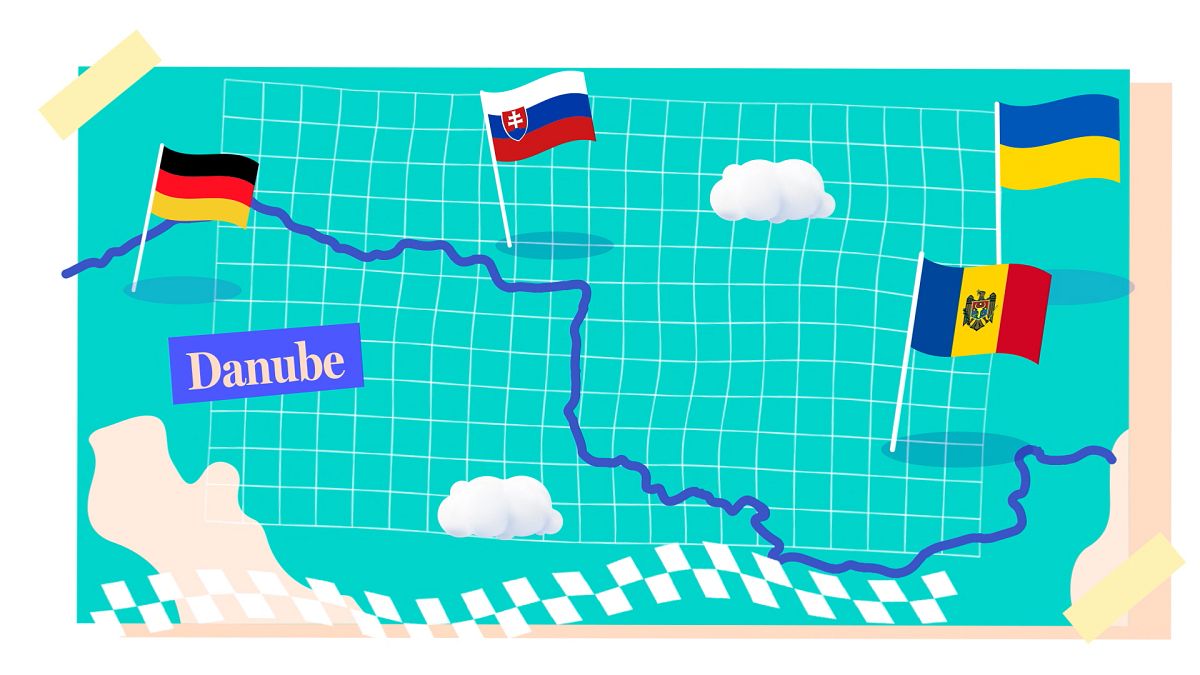Nearly half of the world’s freshwater is shared between at least two or more countries. In this Crash Course, we examine why water cooperation between states is increasingly vital to prevent conflict.
Why is water competition growing?
Climate change and increased demand are leading to greater competition between countries for the planet’s water resources. Nearly half of the world’s surface waters are shared by two or more countries, with Europe having the highest number of communal river basins. Many EU countries rely heavily on water that originates outside their borders. For instance, the Danube flows through nearly a dozen European countries, including Germany, Slovakia, Moldova, and Ukraine. This brings issues such as water scarcity, pollution control, flood management and biodiversity protection into sharp focus.
Some key facts
-
47% of Earth’s surface waters are in river basins shared by at least two countries.
-
These basins support 40% of the world’s population and account for 60% of global river flow.
-
Of 192 countries, 153 share 310 rivers and lakes, and 592 aquifers.
-
These water resources serve 2.8 billion people or 42% of the global population.
Running dry
Europe’s numerous transboundary waterways require extensive international and multilateral cooperation. Water availability varies widely across the EU, with energy production being the largest consumer in Central and Western Europe, while agriculture dominates in the south of the continent. Climate change is exacerbating these challenges, with southern European basins facing severe water stress and northern Europe experiencing less snowfall and increased winter river flows. Managing these changes is politically complex, necessitating cross-border cooperation.
Water consumption and availability vary widely across the EU:
-
Water availability ranges from less than 400 mm/year in parts of the Mediterranean to over 1,000 mm/year along the Atlantic and Alps.
-
Energy production is the largest consumer in Central and Western Europe, and agriculture in Southern Europe.
How does the EU avoid troubled waters?
The EU employs several treaties and agreements to regulate transboundary water cooperation.
Key among these is the Water Framework Directive (WFD). This sets the standard for integrated river basin management by promoting cooperation through joint bodies and shared practice for water quality assessment and monitoring.
The Floods Directive complements the WFD by enhancing flood risk management.
Another pivotal agreement is the Convention on the Protection and Use of Transboundary Watercourses and International Lakes (Water Convention). This mandates equitable and sustainable use of shared waters and fosters cooperation through legally binding agreements.
The Danube River Protection Convention also serves as a model for effective transboundary water management, focusing on the conservation and rational use of the Danube’s waters.
The EU seeks to reduce potential conflict and promote water diplomacy through these and other agreements.
Europe’s shared rivers and lakes
-
Danube River: Flows through several countries, including Germany, Austria, Slovakia, Hungary, Croatia, Serbia, Bulgaria, Romania, Moldova, and Ukraine.
-
Rhine River: Shared by France, Germany, Switzerland, Netherlands, and Belgium.
-
Meuse River: Crosses Belgium, Netherlands, and France.
-
Oder River: Flows through the Czech Republic, Poland, and Germany.
-
Elbe River: Shared by Germany and the Czech Republic.
-
Minho, Lima, Douro, Tejo, and Guadiana rivers: Shared by Spain and Portugal.
-
Lake Constance (Bodensee): Shared by Germany, Switzerland, and Austria.
-
Lake Geneva: Borders France and Switzerland.
-
Lake Peipus: Shared by Estonia and Russia.
-
Lake Saimaa: Crosses Finland and Russia.
-
Lake Ladoga: Borders Russia and Finland.
Getting wise to water
Euronews and the European Commission are partnering to promote the EU’s Water Wise campaign, #WaterWiseEU. Our series, Water Matters, and the EU campaign aim to raise awareness about the increasing stress on Europe’s water systems and the need for sustainable water management. Water Matters will delve into various water-related issues, highlighting the importance of protecting nature and ecosystems integral to the water cycle. Through engaging content, Euronews and the European Commission hope we can inspire individuals and communities to become #WaterWiseEU.

